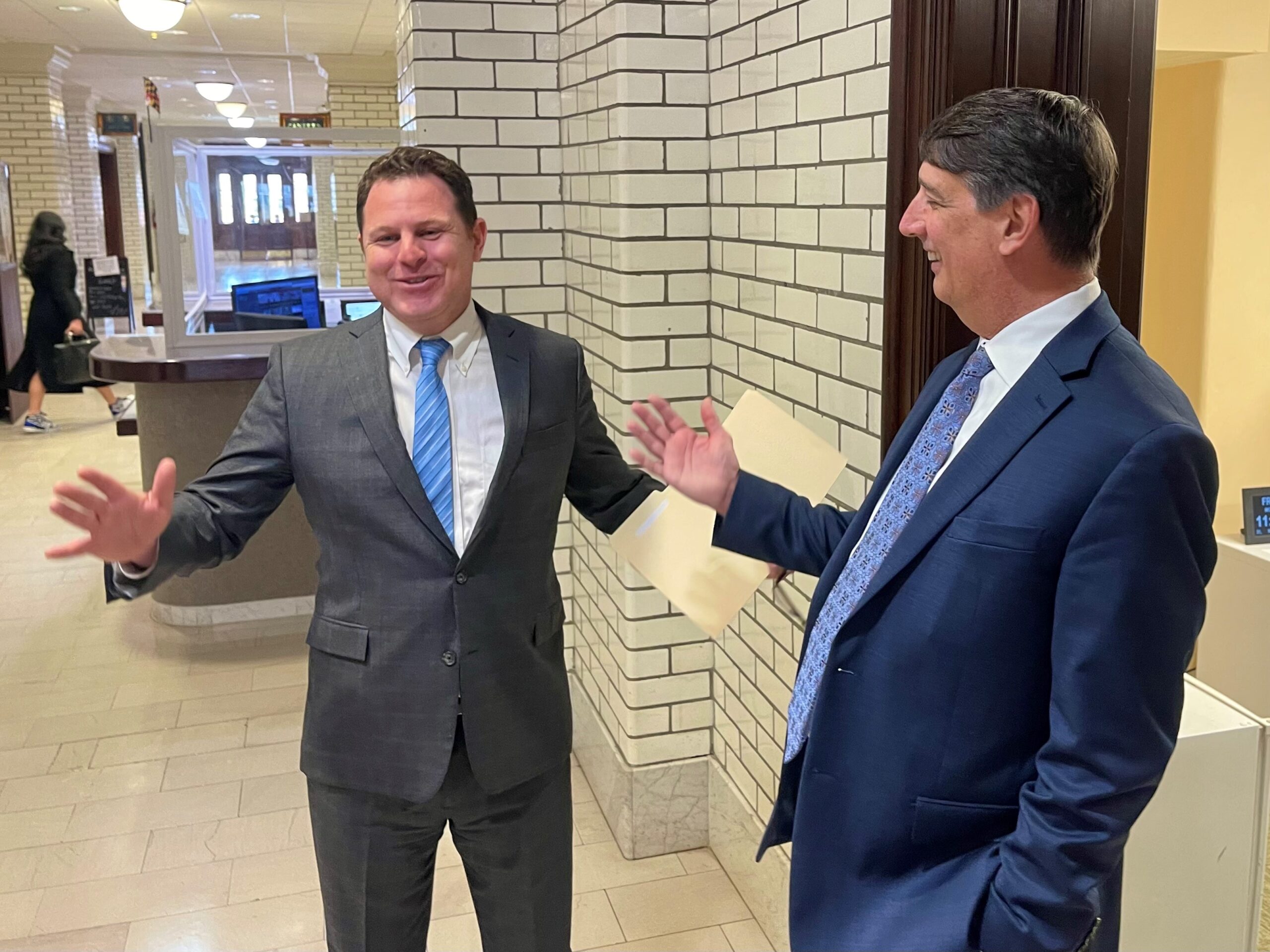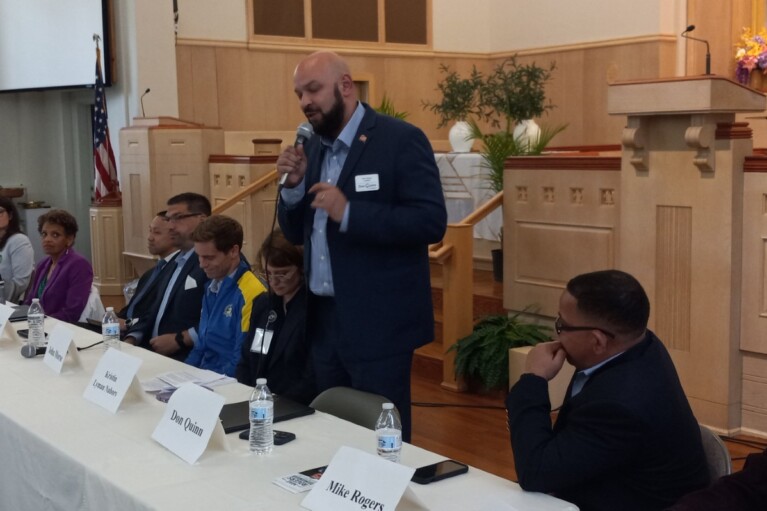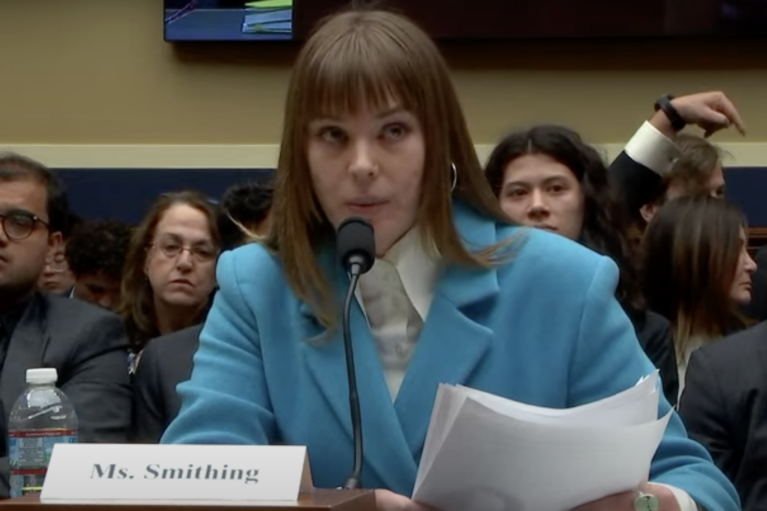Budget negotiators resolve differences on education spending, send final budget plan to House and Senate

Maryland House and Senate budget negotiators resolved a short-lived dispute over education funding Friday afternoon and passed a final version of the state’s $63-plus billion spending plan for the fiscal year starting July 1.
The budget bills will now go back to the House and Senate chambers on Monday for a final up or down vote.
On Thursday, House and Senate budget negotiations had appeared stalled, primarily over a tiny sliver of the state’s $63 billion budget — funding for the Broadening Options and Opportunities for Students Today, or BOOST, program, which provides money for low-income students to attend private schools.
While the House’s budget plan phased out BOOST — as House spending plans have for several years — a Senate budget amendment added $2 million to the program. In January, Gov. Wes Moore (D) released a budget that reduced the program’s allocation from $10 million annually to $8 million and phased out the existence of the program in future years.
The compromise budget language for BOOST prioritizes students who are already in the program, along with their siblings, but stops short of fully phasing out the program.
“While it doesn’t completely phase out the program, the Senate’s position, from our position it was important that before any new entries come in that the people who are already in the program get prioritized,” House Appropriations Chair Ben Barnes (D-Prince George’s and Anne Arundel) said.
The decision came hours after Senate President Bill Ferguson (D-Baltimore City) held a press conference with students and parents who’d benefitted from BOOST payments.
“I’m very pleased with what we’ve been able to accomplish. I think this is a great budget,” Budget & Taxation Chair Guy Guzzone (D-Howard) said at the end of the conference committee’s deliberations. “I’m particularly proud of what we’re doing in education.”
Budget negotiators also sorted out a difference between the House and Senate chambers on downpayments for future education reform efforts.
Moore included $500 million for the Blueprint for Maryland’s Future Fund in his initial budget proposal in January. The House added an additional $400 million when the budget passed that chamber earlier this month, for a total of $900 million.
The Senate scaled that back by $100 million to $800 million when it passed its version of the budget a week later.
While the conferees accepted an amendment to direct $900 million to the Blueprint Fund, they also accepted a Senate amendment that would allow the governor flexibility to withdraw $100 million from the state’s cash reserves, if needed to meet federal matching funds for critical transportation projects.
In other budget action, negotiators agreed to:
— Withhold $250,000 from the Maryland State Police budget until progress reports from freshly confirmed Superintendent Roland Butler submits reports agency efforts to improve morale and race relations.
— Reduce to $51.1 million from the previously proposed $53.9 million to complete the design and begin construction of a new Courts of Appeal Building in Annapolis.
— Require the Maryland Lottery and Gaming Control Agency to study and report on the regulatory requirements and economic impact of online casino games, or iGaming, to the legislature’s budget committees by Nov. 15. Hiring an independent third-party vendor to complete the study would be possible under the amendment.
— Specify that 3 new positions would be added to the Office of the State Prosecutor. The number of positions were not previously specified in the budget.
— Amend budget language to authorize transferring 13 positions from the Maryland Senator Edward J. Kasemeyer (Maryland 529) Prepaid College Trust Fund and two positions from the Maryland Achieving a Better Life Experience to the Maryland Treasurer’s Office, contingent on the enactment of House Bill 1290 or Senate Bill 959.
— Negotiators also agreed Friday with the Senate’s version of the spending plan to strip out all language restricting funds in the Maryland Stadium Authority budget for the improvements at both Pimlico Race Course and Laurel Park.
The House, in an effort to spur the track principals to action, had made the release of $17 million for debt service on the sale of bonds for the improvements contingent upon having all agreements required to move forward to be signed by Sept. 30.
William F. Zorzi contributed to this report.




 Creative Commons Attribution
Creative Commons Attribution